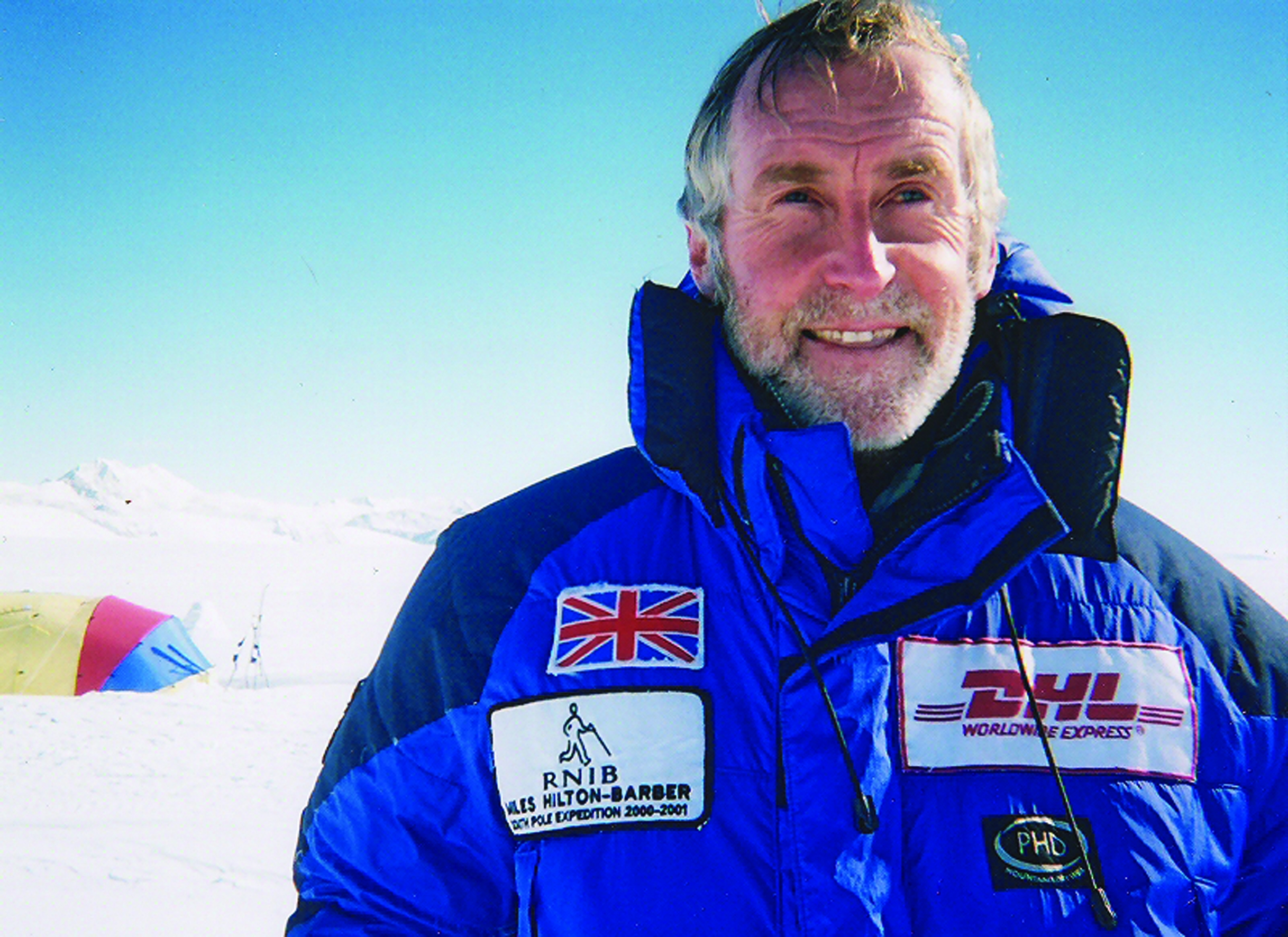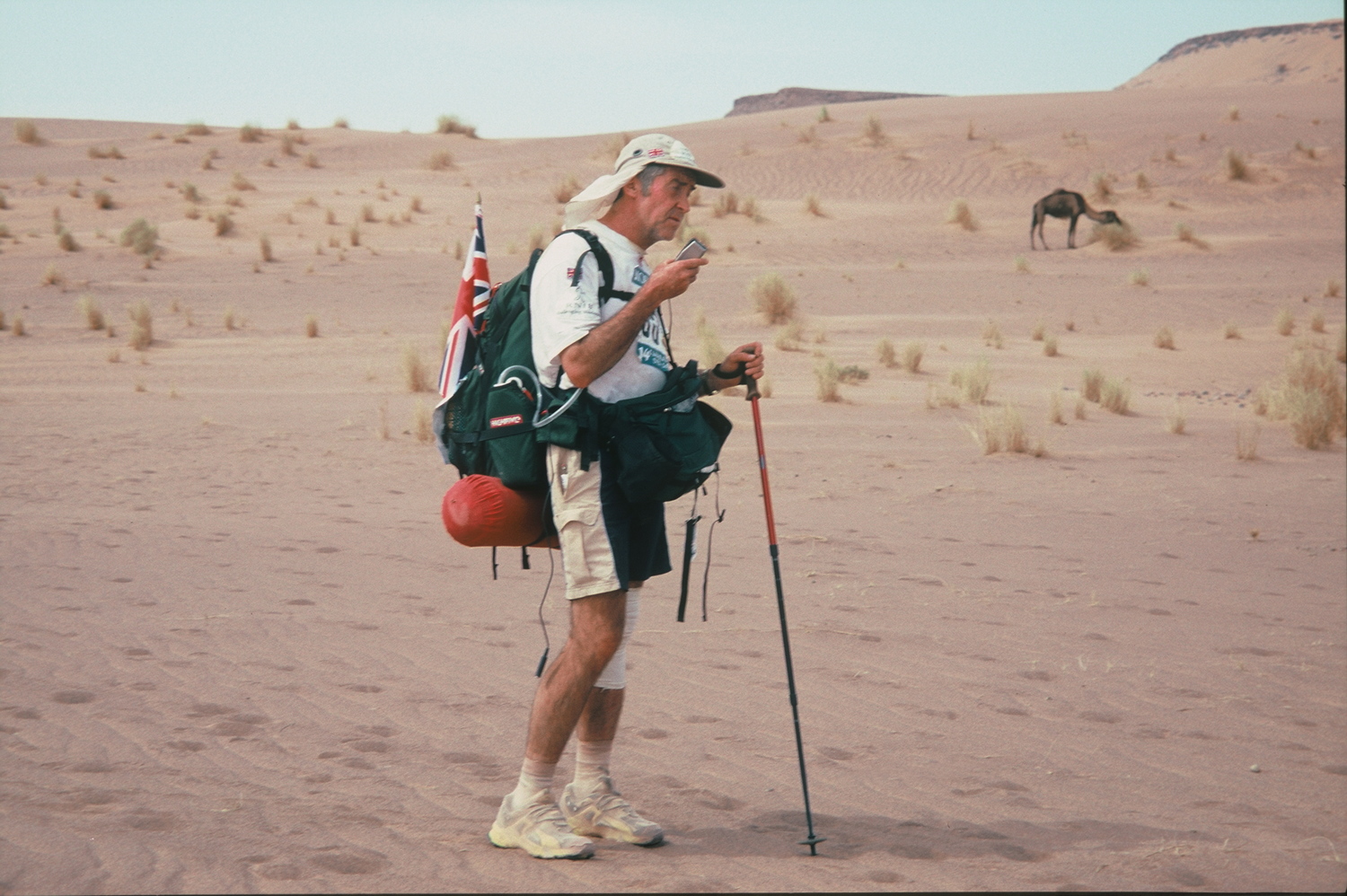
Last year's ECC Congress keynote speaker hopes to be an inspiration
Many of those attending Vet Now’s ECC Congress will have battled through the toughest year of their lives.
But Miles Hilton-Barber believes there’s no point in looking back when so many positive things can still be achieved, and his own remarkable life of fortitude and beating the odds is the most stunning example that.
Having lost his sight in his 20s, Miles underwent an astonishing transformation at the age of 50. Since then he has set numerous world records, flown planes and microlights, climbed the highest mountains and dived into the deepest oceans.
Miles has tackled the toughest endurance events, raced across deserts and trekked the iciest wastes on Earth.
Now, having addressed delegates at over 1500 events in 74 countries, he looks back and insists he’s happier than he was with his sight.

Book your place now
Tickets for this year’s Vets Now ECC Virtual Congress are expected to sell out. Don’t miss out on your opportunity to attend.
Book nowMiles was born in Zimbabwe, where his dad was director of civil aviation. And despite all he’s achieved, his childhood was anything but adventurous.
“I was the youngest in my class and had pretty low self-esteem,” says 71-year-old Miles. “I was a bit of a runt at school and my brother Geoff was always more successful than me.
“And while my dad, who had been a highly-decorated World War Two fighter pilot, was an amazing role model, he was someone I never thought I could live up to.”
Eyesight disorder retinitis pigmentosa, RP, runs in the family and when Geoff had it diagnosed, Miles, too, knew he had problems although he didn’t realise the extent.
At just 21, he learned that he was going to lose his sight.
“The ophthalmologist sent my mum out and just said that I was going to go totally blind,” said Miles. “It was a huge shock. I had never met another blind person and there was absolutely no support. I walked out and didn’t know how to cope.”
The blindness was a gradual process, with Miles pretending it wasn’t going to happen until he had no useful sight by his late 20s.
Back in England, he worked with the Royal National Institute for the Blind until, aged 50, his life changed in a way he could never have imagined.
Geoff, who was living in South Africa, built a yacht by feel in his back garden and then sailed it, solo and despite his blindness, to Australia.
“I’d been someone who hadn’t had the confidence initially to walk to the shops by myself and here was my brother setting a record as the first blind person to cross an ocean by himself,” said Miles, who has three children and four grandchildren with wife Stephanie.
“I went to Australia to congratulate Geoff and he told me that I had to stop focusing on my blindness and instead focus on what I wanted to do. I wanted to be a pilot and I came back thinking about how I could manage that.
“My eyes didn’t work, but my ears did so I learned to fly by listening to the information from the instruments on a speech-output set-up someone designed for me.”

Miles has gone on to set numerous world records, including flying to Australia on a 55-day journey at 70mph in an open-cockpit microlight while facing three massive storms. He had a sighted co-pilot with him and he loves the exhilaration that comes with flying microlights, exposed to the elements.
“I can feel the wind, the heat and the cold and at 5000 feet I can even smell what crops are growing below,” said Miles.
“But if you hit wind-sheer you can drop hundreds of feet in a minute. There was a big storm over the Lebanese mountains with cloud above and below and it was minus-25 degrees and I was covered in ice.
“And when I was flying to Kuala Lumpur a storm hit and the rain was like hail. We dropped until we were just 50 feet above the sea when my sighted co-pilot said he saw land but we almost flew directly into a peninsula.”
Miles has always worked on the principle of having the best, most qualified and experienced, people around him.
But while they have helped keep him alive, Miles has repaid that.
“When I was climbing the Himalayas, I saved the life of my sighted guide John,” said Miles.
“We were on an almost vertical ice incline when he fell. We were roped together and I dug in and that saved us from crashing down on to the rocks below where we would have died.”
Despite his love of flying, Miles has a fear of heights and is also claustrophobic, something he has had to overcome when scuba diving to wrecks.
He discussed the lessons learned in battling the panic he faced at ECC Virtual Congress 2020.
“FEAR – that’s False Evidence Appearing Real,” said Miles. “Your instincts tell you that you can’t breathe under water but with the right equipment, of course you can.
“It takes a bit of faith, but you have to trust.”
Miles started his motivational speaking when he was still with the RNIB and has since gone on independently to address audiences on all seven continents.
Although he began with the intention of helping other blind people, he soon realised the sighted got inspiration, too.
He did just that at last year’s ECC Congress, which took place in a hi-tech virtual conference centre, providing just as many networking opportunities as the traditional event in Leeds.
Internationally renowned vet professionals Dan Fletcher, Megan Brashear and Claire Sharp were among the high-profile speakers.

Miles told delegates about the opportunities that lie ahead after the Covid-19 lockdown.
“You have to stop looking back. Some people may want to wait until the virus has gone and we can all stop wearing facemasks, but the world will never be the same again.
“It has changed forever. My pandemic was going blind and in the early years, I was waiting until I could get my sight back again.
“I was praying for a miracle, but you can’t live in the past. If you drive a car, your front windscreen is much bigger than your rear-view mirror because what lies ahead is more important.
“The danger for many in the veterinary profession is that they may still be looking backwards and thinking they can maybe go back to how they worked before coronavirus.
“But while the next 10 years will be the most disruptive decade in human history, your quality of life isn’t determined by your circumstances. It’s determined by your response to them, just as vets have had to find other ways of working during the pandemic.
“They may have been doing virtual consultations and modern technology can offer so much.
“We might not be able to change what has happened, but we can change our attitude to it.
“Many things in life aren’t impossible, you just haven’t done them yet. Don’t focus on your problems, but rather what you want to do.”
Although his dad died before he had started to undertake his later-life challenges, Miles says he has sensed his presence during his adventures and is sure he’d be proud of how he’s faced them.
And he says lockdown has just given him more time to enjoy home life and appreciate what he has.
“What I miss most is being able to look into the eyes of my wife Stephanie but although I live in darkness, I do so in absolute happiness and contentment,” added Miles.
Click here to book your place at Vets Now’s ECC Virtual Congress 2021.

